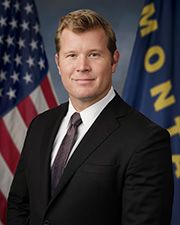0
A bill to require the appropriate Federal banking agencies to establish a 3-year phase-in period for de novo financial institutions to comply with Federal capital standards, to provide relief for de novo rural community banks, and for other purposes.
1/28/2025, 11:56 AM
Summary of Bill S 113
The bill recognizes the challenges faced by de novo banks in meeting the stringent capital requirements set by Federal regulators, which can often hinder their ability to grow and serve their communities effectively. By allowing these institutions a gradual transition period to meet these standards, the bill aims to promote the growth and stability of de novo banks, particularly in rural areas where access to financial services may be limited.
In addition to the phase-in period for capital standards, the bill also includes provisions to provide relief for de novo rural community banks, such as exemptions from certain reporting requirements and regulatory burdens that can be particularly onerous for smaller institutions. Overall, the De Novo Bank Relief Act seeks to support the growth and success of newly established financial institutions, particularly in rural communities, by providing them with the necessary time and flexibility to comply with Federal regulations and thrive in the competitive banking industry.
Congressional Summary of S 113
Promoting New Bank Formation Act of 2025
This bill eliminates and reduces certain requirements applicable to new financial institutions, certain rural community banks, and federal savings associations.
Under the bill, federal banking agencies must issue rules allowing new financial institutions to meet capital requirements within three years. During this period, a financial institution may request to deviate from an approved business plan and the appropriate agency has 30 days to approve or deny the request.
In addition, the community bank leverage ratio—a way of evaluating debt levels—is reduced for new rural community banks. Specifically, new rural community banks must have a ratio of 8%, with a three-year phase-in of the rate. After this period, the ratio rises to its current level of 9%.
Finally, the bill removes certain restrictions to allow federal savings associations to invest in, sell, or otherwise deal in agricultural loans.
Current Status of Bill S 113
Bipartisan Support of Bill S 113
Total Number of Sponsors
2Democrat Sponsors
0Republican Sponsors
2Unaffiliated Sponsors
0Total Number of Cosponsors
1Democrat Cosponsors
0Republican Cosponsors
1Unaffiliated Cosponsors
0Policy Area and Potential Impact of Bill S 113
Primary Policy Focus
Alternate Title(s) of Bill S 113
Comments

Khalani Moody
10 months ago
Not sure about this bill, sounds like it could cause more problems than solutions.

